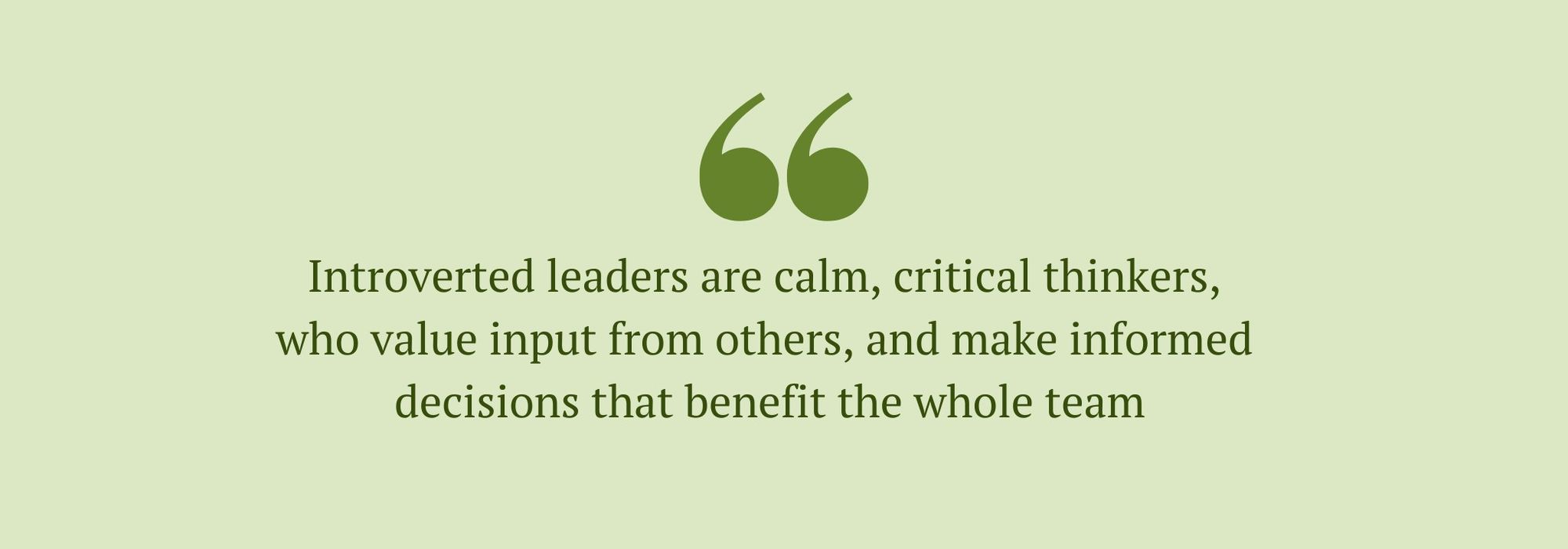
It’s time to recognise and celebrate the many strengths that introverts bring to the table
Have you ever been dubbed a party pooper because you crave an evening with a good book instead of a night on the town? Or been called shy at work because you get on with tasks quietly? Maybe people label you anti-social, because you know your limits and leave the party early? If you can relate to one or more of those experiences, welcome to the club. You’re probably an introvert.
What is an introvert?
Introverts are characterised by their need for alone time to maintain and refresh energy levels. Reading and writing are often their favourite hobbies, but they can find large social events draining and require space and quiet to recharge. This is in stark contrast to extroverts, who are often chatty, outgoing, and feel energised by social activities. Introverts, on the other hand, thrive when given plenty of space for deep thinking and introspection.
Although you may identify strongly with one or the other, introversion and extroversion exist on a spectrum, and it’s common to display a combination of both depending on the situation.
I spoke to Ruth Poundwhite, online business coach and author of Quietly Ambitious, who says the introverts she works with are thoughtful, capable, and driven. “Contrary to popular understanding,” she says, “we still love people, and our heightened sensitivities make us incredibly empathetic and deeply understanding of other humans.”
Unfortunately, we live in a world that champions extrovert traits and often diminishes anything that falls outside of that norm, so much so that those with extroverted traits are 25% more likely to have a higher-paying job, a report by The Sutton Trust revealed. The extrovert bias can also extend to educational and social environments, where introverts can be wrongly perceived as less competent than their extroverted counterparts.
Lindsey Roberts, founder of Goal Digger Coaching, says, “Introverts can often get overshadowed in the workplace, because the extroverts seemingly reign supreme. However, it’s about learning how your introverted skills can really enhance a team’s dynamic, and focusing on those. Everyone brings something different to the table, and everyone needs to be able to have a seat.”
As an introvert myself, I spent a large portion of my 20s trying to be the talkative, outgoing person I thought I had to be in order to succeed. Without giving myself regular breaks to recharge in my own company, it led to serious burnout, and a long road to recovery as I learned to accept that I am already good enough.
With 50% of people in the UK identifying as introverted, according to a YouGov survey, it’s time to shine a light on all the positive qualities that a huge portion of the population has to offer. And by the way, extroverts are great too. Sometimes introverts need that bubbly friend who will do all the talking at a dinner party, or the confident boss who will pitch our amazing ideas at the team meeting. The point is that not everyone has the same traits, and they should all be celebrated equally. But, for now, we’re putting the many wonderful qualities of introverts in the spotlight…

Introverts are natural leaders
During his presidency, Barack Obama was said to spend every evening alone in his office, reflecting on his work in solitude for hours at a time. So yes, believe it or not, introverts can make exceptional leaders. Unlike some people in power, who enjoy the spotlight so much that it distracts from the job at hand, introverted leaders are calm, critical thinkers, who value input from others and make informed decisions that benefit the whole team. Lindsey says this is because “usually they have time to think, while the extrovert is blurting out ideas and thoughts, and an introvert tends to have well-formed and thought-out ideas”.
Introverts are empathetic
Because they are so emotionally aware and observant, introverts can sense when others are struggling, and step in to offer support. Active listening allows the introvert to gather information, process it, and offer a solution, even if that’s simply by validating the emotional experience of the other person.
Introverts are super observant
Where an extrovert thrives in social situations by responding verbally in conversations, introverts are more likely to take a back seat and listen intently to what is being said before giving a measured, well-thought-out response. Their ability to take in the whole picture (behaviours, non-verbal cues, body language) means that they pick up on valuable information that others miss, which makes them experts in understanding situations.
Introverts are creative
It’s not that introverts are born more creative than the rest of the population, but they tend to spend more time alone, which is the perfect environment for focused thinking – a key ingredient in the creative process. Because introverts are keen observers, they are skilled at making connections between ideas, and coming up with innovative solutions. All that time spent thinking means that they can communicate their message with clarity and self-assurance.

Introverts make great friends
Extroverts are sociable beings who thrive around others, and enjoy having a big circle of friends who may fall anywhere on the spectrum from bestie to acquaintance. Introverts are more likely to have fewer, very close friends, to whom they dedicate themselves wholeheartedly. That’s why you might find that your introverted pals are the ones you can call in a crisis, the ones who always remember your birthday, and take note of the little things you enjoy. It’s also very emotionally draining for an introvert to hide their feelings and put on a fake performance, so they give off a real ‘what you see is what you get’ vibe that breeds loyalty and trust in friendships.
In a world that celebrates the loudest voices, remember that your worth is not measured by your volume, but by the depth of your character, and the sincerity of your contributions. Embrace your quiet power, and let your qualities bloom.

